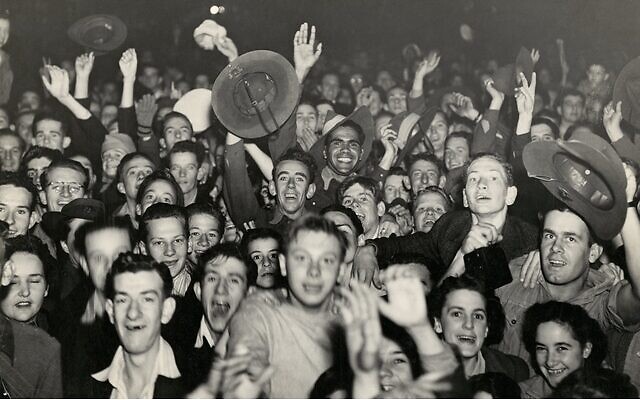‘We can survive anything’
'We're all being tested by this pandemic, some more dramatically than others, but we can turn to our survivors in our enforced stillness and ask ourselves what really matters'.

THE 75th anniversary of the end of World War II: Victory in the Pacific came at a profound time in our lives. I watched transfixed, the wretched and bloody scenes of the death and destruction of the battlegrounds, and the tortured starving souls in prisoner-of-war camps. Scenes we’ve watched many times before seemed to hold a special significance as they beamed on to our computers and TV screens, into our locked-down world.
We heard firsthand accounts from survivors, medics, family members, from painstaking handwritten diaries recounting the daily horrors, a few from past interviews and even fewer from those still with us today who bore witness to arguably one of the darkest periods in modern history.
Watching in my comfortable living-room it was hard to grasp the reality of those handsome faces and strapping bodies of young Diggers and our allies sharing a joke or a cigarette in moments of reprieve. Their faces looked the same as those of our youth today and yet the tragedy of timing took them on a very different journey. Hearing the anecdotes of the sixteen year-olds who lied to qualify for the minimum age of enlistment, jumping at the opportunity to fight for their nation and its values. I couldn’t help reflecting on those today who complain about having to quarantine in plush hotels, to stay home, to socially distance and to wear masks; also for the wellbeing of their country and community.
In the moving commemoration aired on the ABC three dignified servicemen in their sunset years, sitting, adorned in medals the prescribed distance apart, knew the terror like no others in that room at the War Memorial in Canberra. As they watched the scenes of carnage they’d each lived through, what were they thinking? They too, like their fallen comrades had been young soldiers wearing their uniforms proudly. As they looked into the eyes of their mates on the screen what would they tell them if they could, and what would they tell us today as we face a challenge beyond our wildest imaginings?
As Jews, perhaps more than most, we have learned through our harrowing history the inconceivable depths of suffering that can and have been endured. I, like many have frequently turned to Holocaust survivors for their wisdom. If any human could survive the Holocaust, the most cataclysmic genocide of our people, beyond the limits of human imagination, then, I tell myself, we can survive anything.
From Auschwitz to Australia: Eddie Jaku’s memoir, The Happiest Man on Earth, shares how he found gratitude, kindness,…
פורסם על ידי The Australian Jewish News ב- יום שבת, 15 באוגוסט 2020
In The Happiest Man on Earth, Eddie Jaku, the inspirational centenarian who survived Buchenwald and Auschwitz, shares such wisdom in this, his poignant memoir. Eddie tells us “I want to bring people back to listening, to take time for everything – time to cry, time to laugh, time to enjoy, and time to be miserable.” His life and philosophy is testament to his belief that “glimmers of hope shine even in the darkest of hours.”
We’re all being tested by this pandemic, some more dramatically than others, but we can turn to our survivors in our enforced stillness and ask ourselves what really matters. We have this opportunity to pause, to take the time for everything as Eddie’s sage advice suggests, and to think about how we want our world to look on the other side of this global pandemic.
I suspect that those dignified veterans at the VP commemoration and Eddie alike would recommend that we grab this chance with both hands, that we are patient, take one day at a time, that we proffer kindness and support to those close as well as those not so close. As the lessons of history have taught, we will come through this too.
Janine Joseph is a Melbourne writer.

comments